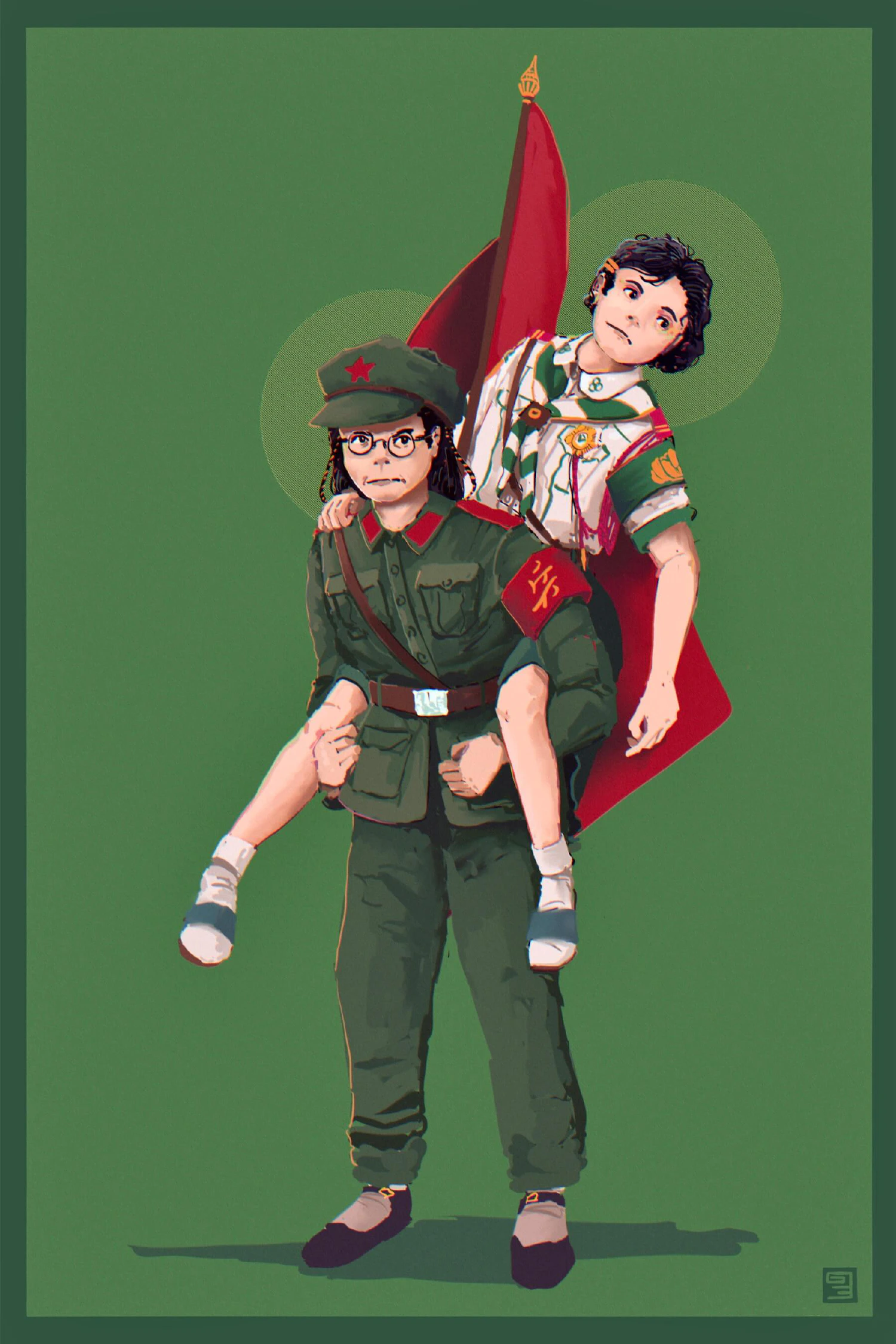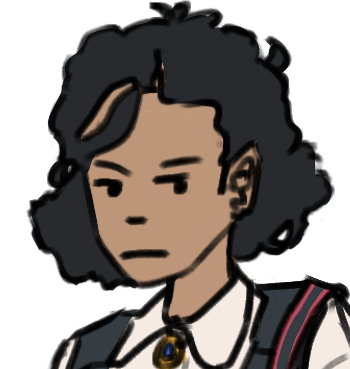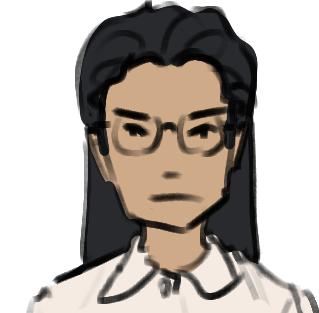NEW Story: Sunday Morning
Socialism, Backwards

Tzipora had become interested in the blossoms of Vekllei society around the same time she became aware of them. That’s actually what they were called, in the pidgin of Vekllei ideology — the tenets of petticoat-style socialism were called blossoms.
Vekllei maintains it is not ideological; it is in fact very ideological — you are looking at a state that is afraid of its skeleton. In the dawning weeks after Vekllei’s catastrophic war, the British occupiers (British Recovery Expedition to Vekllei, or BREVEK) released into the streets some 16,000 activists who were rotting away in political prisons. The majority of these were communists or sympathisers, and found themselves vindicated in the ashes of prewar society. “Look at what we told you,” they wrote in the first issue of the Worker, “our country is in ashes.” It is no coincidence that the Vekllei Communist Party was founded on March 3rd, two days after the occupation of the country. They treated the British as liberators.
The release of political prisoners coincided with the legalisation of labour unions, which exploded in membership — some 4 million Vekllei, or 60% of the country, were union members by 2011. Most were not aware of what a union did or what purpose they served, but membership could prevent starvation and they were independent from the BREVEK occupying apparatuses.
This rise in unionism surprised and alarmed BREVEK commanders, who could see trouble brewing — the unions were a keg, and the communists were an open flame. Since union leadership was usually sympathetic towards the Marxists, and were effective at mobilising their members, it was not difficult to imagine the communists seizing their advantage once occupation ended and 200,000 British troops left Vekllei.
What resulted was the Vekllei Interim Prosperity Government, an early preparation for Vekllei independence orchestrated to temper communist support. The Interim Prosperity Government deliberately excluded existing political activists in its advisory board, but did not exclude radicals altogether — instead, communism was defanged through the invitation of “loveable radicals” in the arts, scientific, industrial and legal communities. These people were often sympathisers, but they were not equipped or networked to mobilise the labour unions, and so were seen as a favourable strategic concession by BREVEK. Another interesting fact is that over half of the Interim Government were women — simply because they were not well represented among Vekllei Communist Party leadership.
This is how, in an absurd way, Vekllei’s first independent government was made up mostly of communists but was not a communist government. And it was precisely this disruption of the Marxist revolutionary process that resulted in Vekllei’s unusual syndicalism, which on weekdays moves fluidly between state centralism and anarchy. It was precisely the sort of government vulnerable to displacement, if not for the threat of violence from 200,000 British occupiers. In fact, the Vekllei Communist Party was nearly driven underground by direct intervention by BREVEK command in 2014, after a general strike. The final blow to the Party came in 2015, with the outlawing of political parties in parliament and a transition to floral-style nonpartisan democracy.
Lin Zhi was a Chinese communist, and as of her sixteenth birthday, was now Vekllei, too. Her family, mostly princeling descendants of long-marchers, had been caught up in the purges and were now considered counterrevolutionary. There are many such communists in Vekllei. Moise’s girlfriend, Coretti, came from the socialist Congo and the USSR. Even Baron’s parents had been Labour Zionists. Vekllei was a very exciting place to be, full of memories and bitterness and optimism for an even-handed future, one in which unfavourable worker-peasant-soldiers, postcolonial refugees and dispirited Jews alike might dream of a truly multiracial socialist state.

